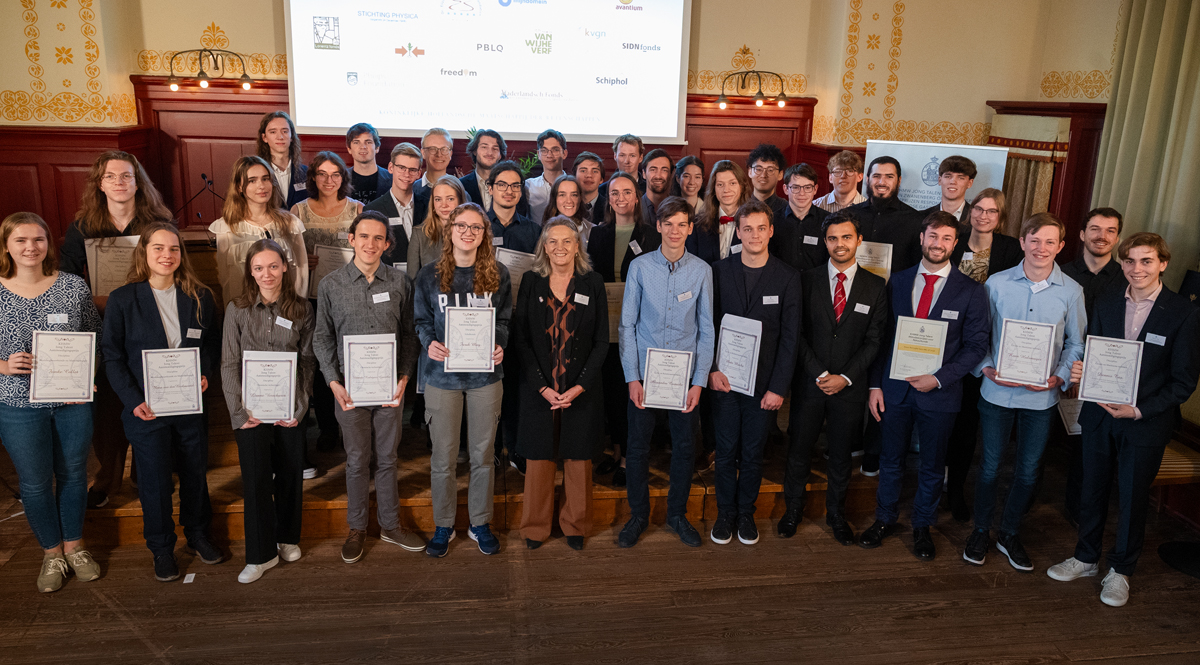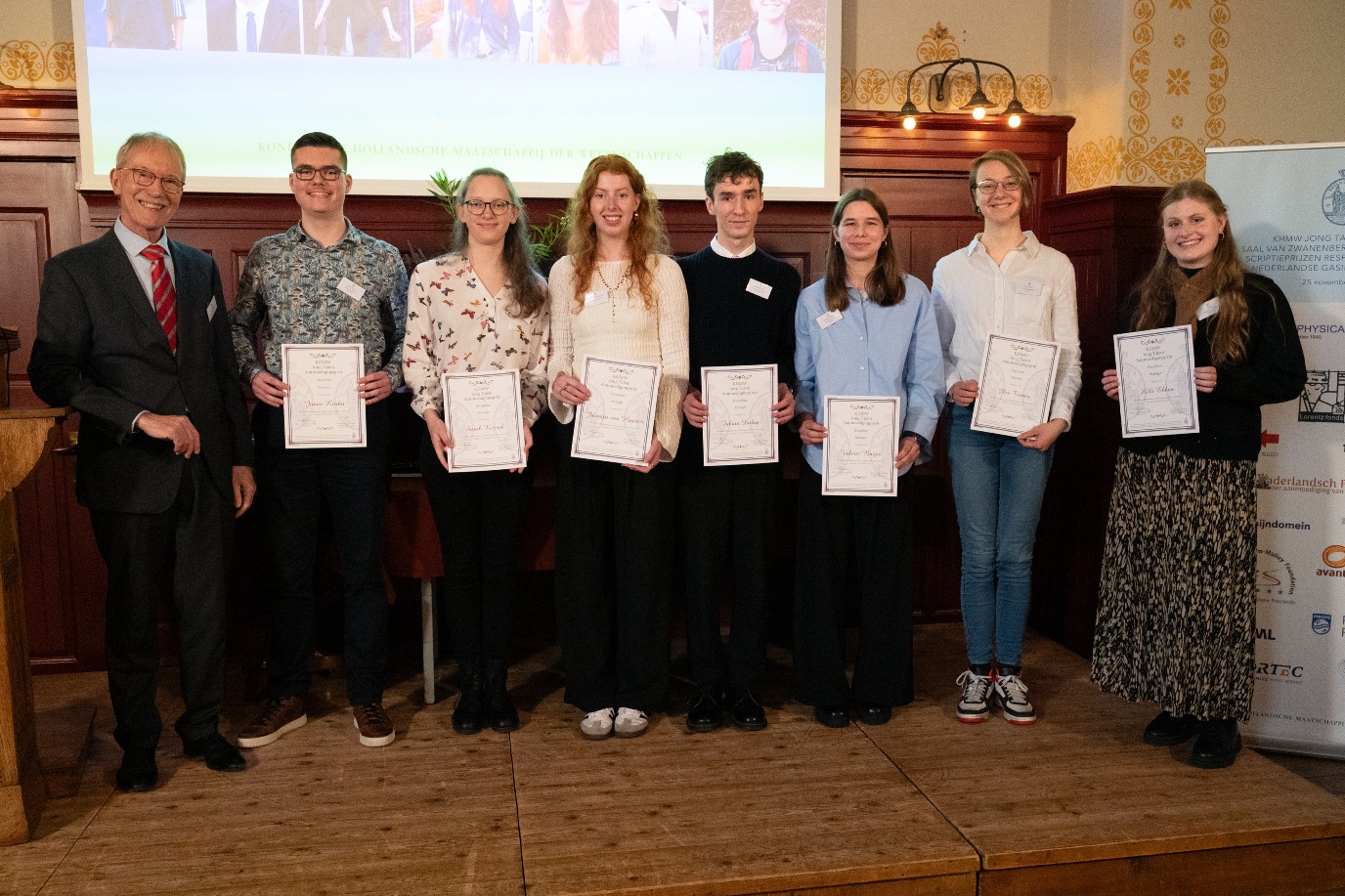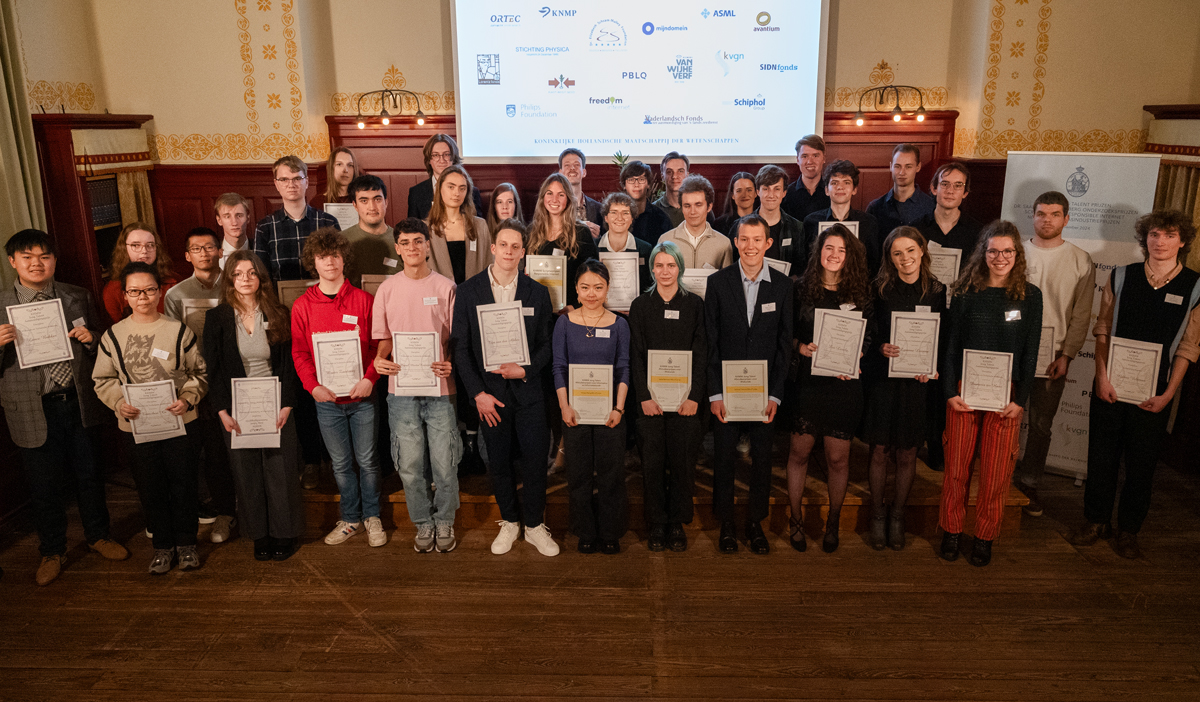Ten Groningen science and engineering students win national Young Talent Incentive Award
On Monday November 25, ten students of the Faculty of Science and Engineering (UG) were presented with a Young Talent Incentive Award by the Royal Holland Society of Sciences and Humanities ( KHMW ) in the Hodshon house in Haarlem. They are the best first-year students of the Netherlands in their field, with the highest average score of their year.
The Young Talent Awards are are made available by businesses, foundations, and funds in the respective fields for the advancement of higher scientific education in the fields of science and engineering. The KHMW hosts the judging and awards ceremony each year.
These ten Groningen students received the Young Talent Incentive Award of 500 euros for their achievements in the first year of study:
|
Bachelorstudent
|
Award
|
|
Calin Săgărceanu
|
Incentive Award Chemistry
|
|
Eduard Mrug
|
Incentive Award Physics and Technical Physics
|
|
Avigail Manor Schuss
|
Incentive Award Astronomy
|
|
Youri Wilbrink
|
Incentive Award Chemical Engineering
|
|
Fabian Doboş
|
Incentive Award Biology
|
|
Leire Vazquez Quiroga
|
Incentive Award Biomedical Technology
|
|
Beāte Bensone
|
Incentive Award Pharmacy or (Bio)pharmaceutical Sciences
|
|
Mihnea Pasere
|
Incentive Award Informatics and Technical Informatics
|
|
Miguel Martín Rodríguez
|
Incentive Award Mathematics and Technical Mathematics
|
|
Matei Tanasa
|
Incentive Award Artificial Intelligence
|
Besides the incentive awards, there were also graduation awards for students with an exceptional master's thesis or research paper. In total, 96 awards were presented in three sessions.



| Last modified: | 13 December 2024 10.42 a.m. |
More news
-
03 April 2025
IMChip and MimeCure in top 10 of the national Academic Startup Competition
Prof. Tamalika Banerjee’s startup IMChip and Prof. Erik Frijlink and Dr. Luke van der Koog’s startup MimeCure have made it into the top 10 of the national Academic Startup Competition.
-
01 April 2025
NSC’s electoral reform plan may have unwanted consequences
The new voting system, proposed by minister Uitermark, could jeopardize the fundamental principle of proportional representation, says Davide Grossi, Professor of Collective Decision Making and Computation at the University of Groningen
-
01 April 2025
'Diversity leads to better science'
In addition to her biological research on ageing, Hannah Dugdale also studies disparities relating to diversity in science. Thanks to the latter, she is one of the two 2024 laureates of the Athena Award, an NWO prize for successful and inspiring...
